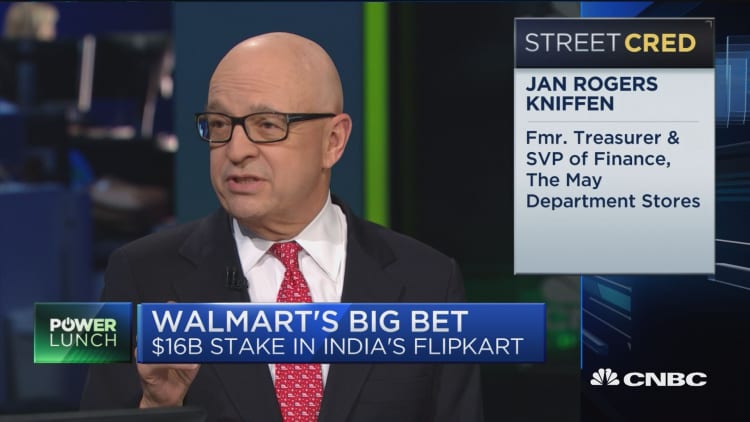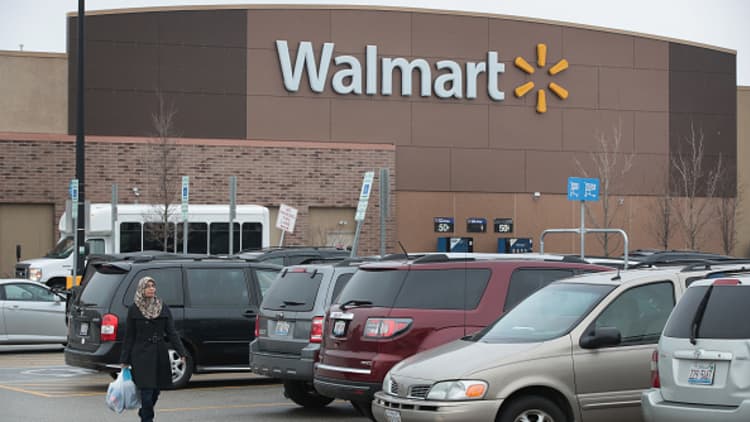With U.S.-China relations in a fragile state, American companies are taking a closer look at India for opportunities.
Case in point: Walmart's $16 billion deal for Flipkart, India's largest e-commerce company.
"As US China deal flow slows, or face regulatory challenges, companies are increasingly looking to India for opportunity as their next growth market," says Kumar Shah, managing director of Transit Capital, a cross-border venture capital firm.
Recent data from Rhodium Group shows two-way U.S.-China direct foreign investments declined by almost one-third in 2017 from the prior year as criticism over national security grew. But some analysts point to China's maturing market as another reason for the decline.

"A lot of the heavy lifting in China has been done. In India, there is still so much room for growth," said Shailesh Kumar, director for Asia at Eurasia Group.
India continues to boast an appealing story. It is the second largest country in the world with 1.3 billion people, half under the age of 25.
With more start-ups entering the scene, Shah expects a steady increase in cross-border deal activity.
Another factor helping is easing regulation, as Modi's government becomes less protectionist.
Kumar says the government has put a concerted effort in easing foreign direct investment, which has made India's market suddenly more accessible.
Multi-brand retail chains can own up to 51 percent of their investment in India, and single brand retail (i.e. Apple, Nike) is now up to 100 percent. Certain conditions do apply. The government looks for single brand companies to get 30 percent of its goods from India.
"One area we could see more deal activity is within e-commerce as Modi's government views this sector as favorable and defines it as a marketplace, a platform where local players can buy and sell goods," says Kumar.
Morgan Stanley projects India's e-commerce market to become a $200 billion market by 2027.
Indian regulators will be keen to understand how Walmart's Flipkart deal will affect India's workforce. In the past, there has been concern that a behemoth like Walmart would come in to India, displace workers and hurt small businesses.
Real questions will arise if Walmart starts selling a private label brand on Flipkart's platform, a move that some worry will price out local players.
"That's a huge concern for us," said one small business owner in Pune to CNBC.
However Mukesh Aghi, CEO of US-India Strategic Partnership Forum, says the deal will be good for Indian jobs.
"The Wal-Mart-Flipkart deal is good for India as a whole. It will strengthen the agriculture supply chain and create new skilled jobs, said Aghi to CNBC over email.
Aghi went on to say, "The deal will create good competition, which benefits customers and is good for sellers on the platform."
Some Indian analysts say they are watching closely to see if any displacement does occur, especially with automation and new technology being used by the online retail sector.
WATCH: Walmart agrees to buy majority stake in Flipkart



